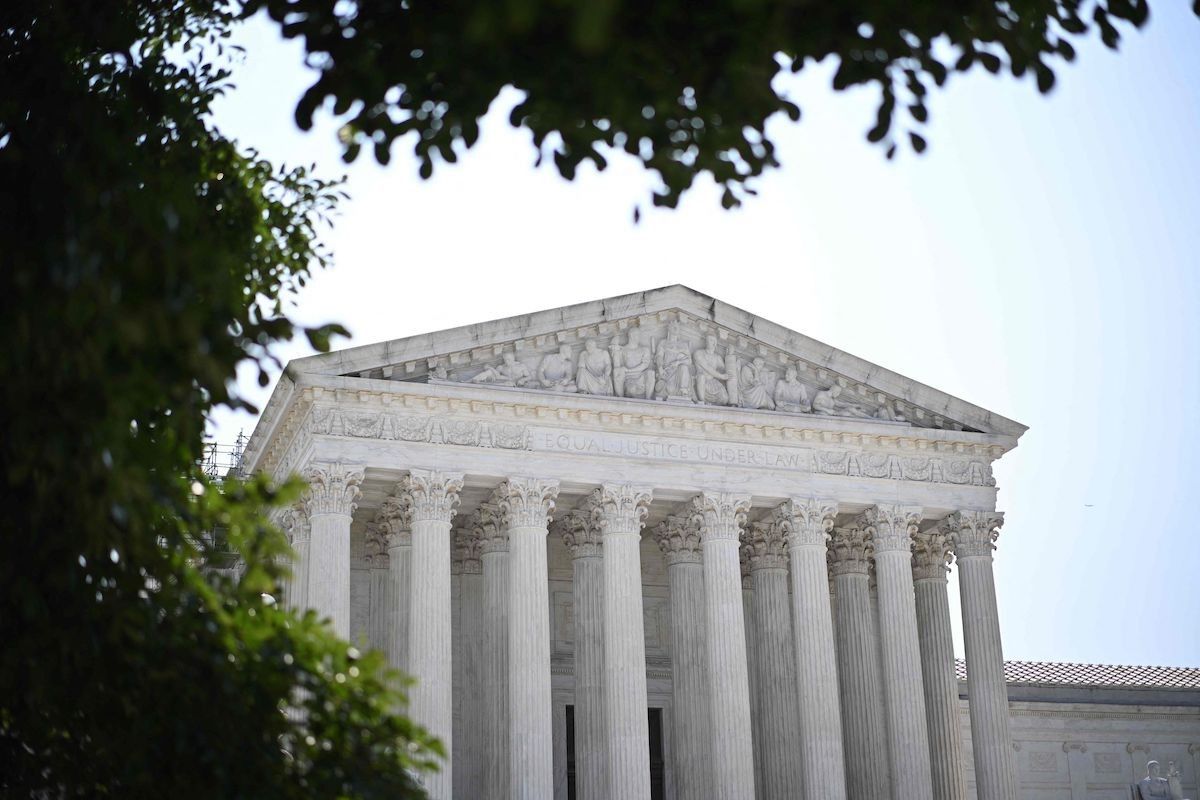
The US Supreme Court in Washington, DC, on June 15, 2023.
Photo by Mandel Ngan/AFP via Getty Images.

The US Supreme Court in Washington, DC, on June 15, 2023.
In a 6-3 decision announced on Thursday, the U.S. Supreme Court ruled against race-based college admissions practices used by Harvard University and the University of North Carolina.
In a decision made on Thursday (June 29), the U.S. Supreme Court disqualified race-conscious college admissions policies used at higher education institutions like Harvard University and the University of North Carolina. Along with colleges and universities across the nation, the ruling will considerably affect the American workplace.
The 6-3 decision in the UNC case, written by Chief Justice John Roberts, maintained that affirmative action practices violate the equal protection clause of the 14th Amendment. Forgoing their vote in the 6-2 Harvard case was Justice Ketanji Brown Jackson, due to attending Harvard where she received her undergraduate and law degrees. Jackson also served on the board of overseers at Harvard.
"We have time and again forcefully rejected the notion that government actors may intentionally allocate preference to those 'who may have little in common with one another but the color of their skin,'" Roberts wrote in the majority opinion. "The entire point of the Equal Protection Clause is that treating someone differently because of their skin color is not like treating them differently because they are from a city or from a suburb, or because they play the violin poorly or well."
The cases address racial inequality and the diversification of educational institutions. Since 1978, the Supreme Court has repeatedly ruled that the race of applicants may be considered, as long as the quota system isn’t used.
"Both programs lack sufficiently focused and measurable objectives warranting the use of race, unavoidably employ race in a negative manner, involve racial stereotyping, and lack meaningful endpoints," Roberts added. "We have never permitted admissions programs to work in that way, and we will not do so today."
Roberts continued, "At the same time, as all parties agree, nothing in this opinion should be construed as prohibiting universities from considering an applicant's discussion of how race affected his or her life, be it through discrimination, inspiration, or otherwise.”
In her dissent, Justice Sonia Sotomayor (who was joined by Elena Kagan and Jackson), says that the decision "rolls back decades of precedent and momentous progress."
"It holds that race can no longer be used in a limited way in college admissions to achieve such critical benefits," she wrote. "In so holding, the court cements a superficial rule of colorblindness as a constitutional principle in an endemically segregated society where race has always mattered and continues to matter."